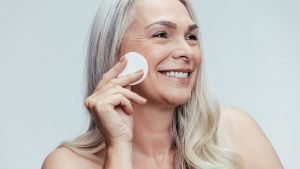
Despite what you have been told by your doctor, or perhaps what you have seen with friends or family, the diagnosis of an auto-immune condition is not a life sentence. An auto-immune diagnosis does not automatically subject you to a lifetime of debilitating symptoms that are only half-masked by expensive pharmaceutical drugs like immunosuppressants or steroids.
So, what’s the secret to becoming one of the many who live with vitality and vigor despite their auto-immune disease(s)? It all starts with a few simple, consistent, daily lifestyle habits.
Time and time again, research and clinical examples have demonstrated that there are various things you can do to support your immune system, decrease inflammation, and rebalance your body so you can live without debilitating auto-immune symptoms.
Here are the top 5 easy – but crucial – practices that you need to implement immediately if you’re a woman suffering from auto-immunity:
Eradicate High Fructose Corn Syrup from Your Diet
Of course, high fructose corn syrup (HFCS) isn’t the only food that women with auto-immunity should watch out for, but eliminating this perpetrator from your diet is a terrific place to start!
HFCS has been referred to as a “weapon of mass destruction” for health, and it is hiding in a surprisingly wide variety of foods including sweetened soft drinks, cereals, baked goods, and other bagged or packaged foods, yogurts, and even seemingly benign condiments like ketchup!
HFCS promotes inflammation via a number of physiologic pathways including elevated cytokine production and uric acid production. It can also increase both blood sugar and insulin levels, which promote weight gain and fat storage and further contribute to high levels of inflammation.
Decreasing dietary sources of inflammation is vital for women with auto-immune conditions, and removing HFCS (if you haven’t already) is an absolute must! Check your food labels for HFCS, or better yet, avoid packaged and boxed foods entirely!
Eat 7-9 Servings of Brightly Colored Fruits and Vegetables Every Single Day
It’s not always about what you need to take OUT of your diet… it’s also about what you need to ADD to it! Food is not just calories – the food we eat actually provides vital information to our bodies!
Eating 7-9 cups of fruits and vegetables (mostly vegetables) daily will help to ensure you’re getting all of the vitamins, minerals, and powerful phytonutrients and antioxidants your body needs to offset inflammation and promote balanced immune system function.
Also, if you’re focused on eating 7-9 cups of fruits and vegetables daily, that doesn’t allow as much room for unhealthy, inflammatory foods to sneak into your diet!
Walk 7,000-10,000 Steps Per Day
Physical activity is proven to be a strong modulator of the immune system. Regular exercise is extremely important, but as many women with auto-immune conditions have discovered, overdoing exercise can lead to greater inflammation and even an exacerbation of auto-immune symptoms.
The key is to engage in a balanced but consistent exercise routine that you can slowly progress in intensity as your body allows.
If you don’t already have a balanced, consistent exercise routine that works for you, you can begin by getting 7,000-10,000 steps every single day! Download a step counter on your phone, lace up your sneakers, and go! (Bonus points for walking outside in nature!!)
Go to Sleep by 10:30pm and Wake Up by 7:30am
Getting consistent and adequate sleep, meaning a MINIMUM of 7 hours, but ideally 8-9 hours of sleep per night, is one of the absolute best things you can do to promote a healthy, balanced immune system. Sleep is an anti-inflammatory process, and adequate sleep is vital for regulating cortisol, which is the body’s main stress hormone.
Going to bed by 10:30pm and waking up by 7:30am aligns with the body’s natural diurnal rhythm and can help promote balanced cortisol levels and healthy levels of inflammation, which are crucial for women with auto-immune conditions.
Meditate Every Morning for 10 Minutes
Some people may think that meditating for auto-immune disease sounds “quacky,” but a systematic review of 20 randomized controlled trials on mindfulness meditation concluded that “mindfulness meditation appears to be associated with reductions in proinflammatory processes, increases in cell-mediated defense parameters, and increases in enzyme activity that guards against cell aging.”
Additionally, it has become evident that stress plays a significant role in the presentation and progression of auto-immune diseases. This is especially evident in women due to the fact that females are physiologically more sensitive to the negative effects of stress, namely the hormone cortisol.
A 2013 study revealed that “Mindfulness meditation lowers the cortisol levels in the blood suggesting that it can lower stress and may decrease the risk of diseases that arise from stress…”
You can find loads of guided meditations online that you can listen to and follow along. You may not enjoy it at first, but stick with it… it’s a journey, and it will pay off!
These tips may seem simple. You may have even found yourself saying “I already know that” while reading. If that’s the case, then I want to know… are you actually following through on these practices 110% of the time? If not, then mastering these easy, daily foundational steps is exactly where you need to start. They don’t work if you don’t use them!
If you’ve already mastered these daily practices, yet you’re still struggling with your auto-immune symptoms, you need to work with an integrative health practitioner who can help you uncover and address the underlying root cause imbalances that may be contributing to your auto-immune disease so that you can finally ditch those debilitating symptoms once and for all.
Let’s Have a Conversation:
Do you struggle with an auto-immune condition? What do you do to alleviate your symptoms? Do you often feel like you can’t live a normal life since you developed the condition? What has been most helpful in your journey?
Disclaimer: This article is not intended to provide medical advice. Please consult with your doctor to get specific medical advice for your situation.





